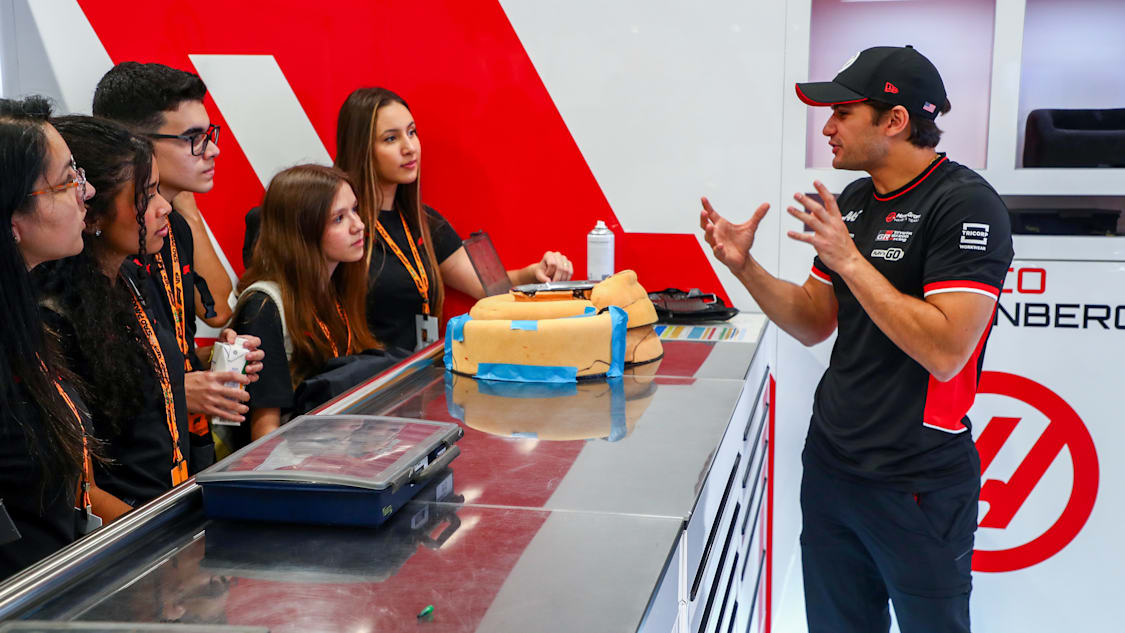BREAKING NEWS: Formula 1 Launches Learning Sectors to Inspire Future Innovators

BREAKING NEWS: Formula 1 Launches Learning Sectors to Inspire Future Innovators
Formula 1, renowned for its cutting-edge technology, engineering, and innovation, is taking an impactful step toward empowering the next generation through a new educational initiative called Learning Sectors, launched in collaboration with the British Council. This program, which is set to begin in January 2025, is designed to introduce young people around the world to the dynamic world of STEM (Science, Technology, Engineering, and Mathematics) through a focus on the fundamentals of motorsport and the fields that support it. By creating this program, Formula 1 aims to inspire students to explore academic paths that could lead to careers in motorsport and related industries, emphasizing the importance of STEM education in shaping future engineers, innovators, and leaders.
Learning Sectors will specifically target young people aged seven to 16 across four countries: Brazil, India, South Africa, and the United Kingdom. In total, the program is expected to reach over 130,000 students across 700 schools in these countries. This ambitious initiative reflects F1’s commitment to expanding educational access and nurturing a global interest in STEM, with an inclusive approach that spans multiple regions and cultures. The British Council’s collaboration on this project also aligns with its mission of creating educational and cultural connections, which complements Formula 1’s goal of bringing the excitement and possibilities of motorsport and technology to young audiences.
This educational initiative comes at a time when the importance of STEM skills is growing globally, as these disciplines form the foundation of many of today’s most in-demand careers, from engineering to information technology to medical sciences. By investing in this program, Formula 1 not only seeks to build a stronger talent pipeline for the sport but also hopes to instill a long-lasting interest in STEM among young people, regardless of whether they ultimately pursue careers in motorsport. This outreach aligns with Formula 1’s broader commitment to social responsibility, diversity, and inclusion, as well as its ongoing efforts to contribute positively to society through initiatives that promote education and sustainability.
The Learning Sectors program is designed to be more than just an introduction to STEM; it will also emphasize the real-world applications of these subjects, particularly in the context of motorsport. Students will have the opportunity to learn about how principles of physics, engineering, and technology play a critical role in racing and automotive innovation. For instance, they may explore concepts like aerodynamics, which is vital for the design of F1 cars, or data analysis, which teams use to make strategic decisions during races. By making these connections, the program aims to make STEM more tangible and engaging for students, moving beyond theoretical knowledge to show them how these subjects can be applied in exciting, high-stakes environments.
Additionally, Learning Sectors is structured to provide hands-on experiences where possible, enabling students to engage directly with STEM concepts in ways that stimulate curiosity and foster a sense of achievement. Through a variety of interactive activities, projects, and possibly virtual or live demonstrations, students will get a sense of the challenges and opportunities within STEM fields. These experiences can be particularly powerful for younger students who might be encountering these ideas for the first time. Formula 1 and the British Council aim to ensure that students not only develop foundational knowledge in STEM but also build confidence in their abilities to pursue further learning in these areas.
This initiative may also include mentorship components or exposure to professionals in the field, such as engineers, data scientists, and other experts who work behind the scenes to bring each Formula 1 race to life. By interacting with people who have successfully pursued STEM careers, students can gain valuable insights into what it takes to work in these industries and see real-life examples of what they might achieve through dedication to their studies. Such interactions can be particularly inspirational, offering students role models and practical advice on the paths they can take to enter these fields.
In the long run, Learning Sectors could have far-reaching effects beyond just Formula 1. By inspiring young people to engage with STEM education, the program may also contribute to broader economic and technological advancements, especially in developing countries where access to STEM education and related career paths may be limited. This global scope of the program underscores Formula 1’s vision of making motorsport a platform for positive change and a force for educational enrichment. The skills and knowledge these students gain could empower them to contribute to diverse industries, including renewable energy, healthcare, software engineering, and beyond, potentially shaping the innovators and problem-solvers of tomorrow.
Formula 1’s partnership with the British Council is an essential aspect of this program’s potential success, as it brings together expertise from both education and sports sectors. The British Council’s longstanding experience in creating educational programs worldwide will be invaluable in tailoring Learning Sectors to meet the needs of each region, ensuring that the content is culturally relevant and accessible. Together, these organizations hope to create a curriculum that resonates with students and is adaptable to various educational contexts. Through this collaboration, Learning Sectors aims to create a memorable educational experience that could impact young lives and communities long after the program concludes.
Ultimately, Learning Sectors represents Formula 1’s dedication to supporting the next generation of STEM learners and its commitment to building a more inclusive and accessible future. By focusing on young people from diverse backgrounds and exposing them to the thrilling world of motorsport technology, F1 and the British Council hope to unlock potential, foster curiosity, and inspire a global community of learners who may one day push the boundaries of what is possible. This ambitious educational outreach not only serves the interests of the sport but also contributes to the wider goal of equipping young people with skills and passions that will prepare them for success in an ever-evolving world.





